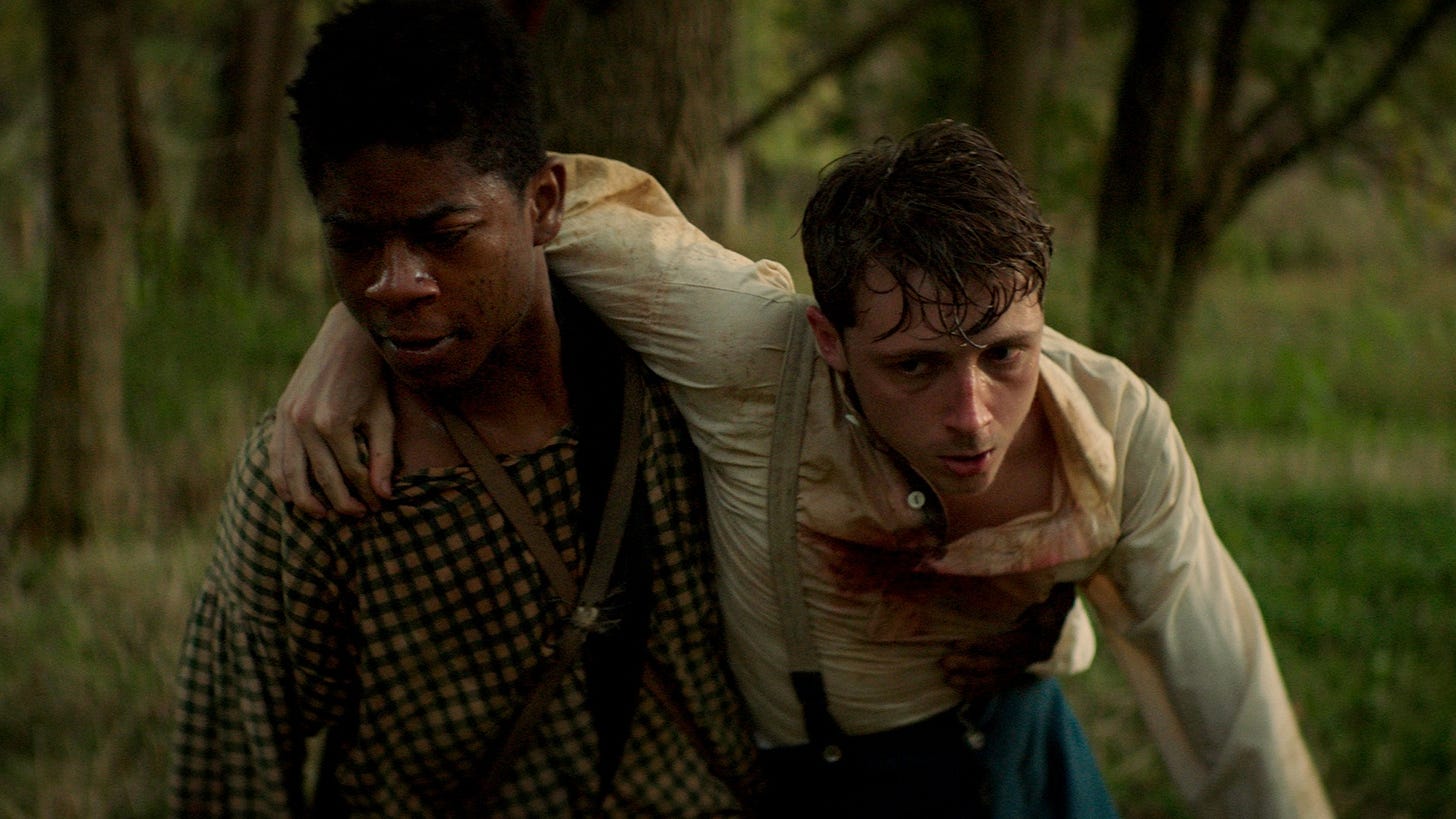Freedom's Path
A lyrical film set during the Civil War about the unlikely friendship between a white Union soldier and a member of the Underground Railroad.
There have been a lot of movies about the Civil War and the Underground Railroad, though not many quite like “Freedom’s Path.” It’s a lyrical, evocative story about the unlikely friendship between two young men, one a Union soldier and the other a member of the railroad moving escaped slaves north to freedom.
Written and directed by Brett Smith, it’s a feature-length version of his own short film from a few years ago. It’s the sort of movie that can be tough to watch at some points owing to the physical and spiritual depredation of an entire people. But it’s also a story filled with brotherhood and hope.
The filmmaking M.O. reminds me of David Lowery (“Ain’t Them Bodies Saints,” “The Green Knight”), a very organic, poetic style that sees its characters as just another part of the natural world. The result is a slower-paced, dreamy aesthetic, like we’re wandering through mythology.
RJ Cyler plays Kitch, who grew up as an orphan of slavery never knowing his parents. He was adopted by Caddy (Carol Sutton) and Abner (Thomas Jefferson Byrd), older free Blacks who have taken in a number of such children over the years. They live on the borderlands between the North and South, working a squalid piece of land no one else wants, left alone by those fighting the conflict.
Kitch has grown tired of hiding out the war, and as the story opens he and some other young men are making their way to the front lines to join up. Along the way they meet William (Gerran Howell), who joined up as an idealistic youth but fled form his first battle after his best friend was killed. Wounded and delirious, William is saved by Kitch and his fellows, but the rest of them are soon murdered by slave hunters.
This dastardly lot is led by Silas (Ewen Bremner), who injects a sadistic sense of glee into chasing and killing slaves. While other defenders of the Confederacy might blather about preserving their way of life or whatnot, Silas does not mask his enjoyment of torturing his quarry.
Both William and Kitch are very young — it’s never directly stated in the movie, but I would guess they’re around 15 or 16. In this time and place they’re old enough to fight and kill but young enough to still be dismissed as “boys” by most of the adults.
William, shy and retiring, is somewhat embarrassed at having his life saved by a Black man. For his part, Kitch is headstrong and sometimes reckless, but has a good heart. The slowly begin to build a brotherly bond between them, something that takes each by surprise.
It’s a heartfelt coming together, sometimes bordering on treacly.
The last act of the movie predictably becomes an extended face-off with Silas and his posse, and at this point “Freedom’s Path” falls back on tried-and-true action movie tropes to carry the narrative. Given the setup this confrontation seems inevitable; I just wish the filmmakers could have executed it with a little more innovation or panache.
This is at once a combination of both very old and new filmmaking styles. The storytelling feels like it could have come straight of the 1950s, sort of an Old West version of “The Defiant Ones.” But it’s set against a moody backdrop of mournful music and roving camera work.
Cyler is the real standout, giving Kitch an urgent sort of humanity. He’s angry and proud, but also has the capacity for great empathy and gentleness. William, who acts more as the audience’s eyes and ears, tends to be the reactor to Kitch taking the lead.
What “Freedom’s Path” lacks in originality, it makes up for with conviction and an unblinking eye toward the ravages of slavery.



